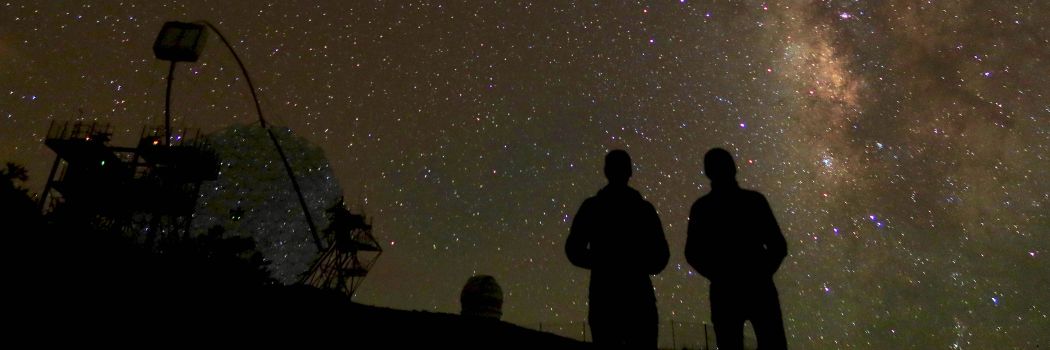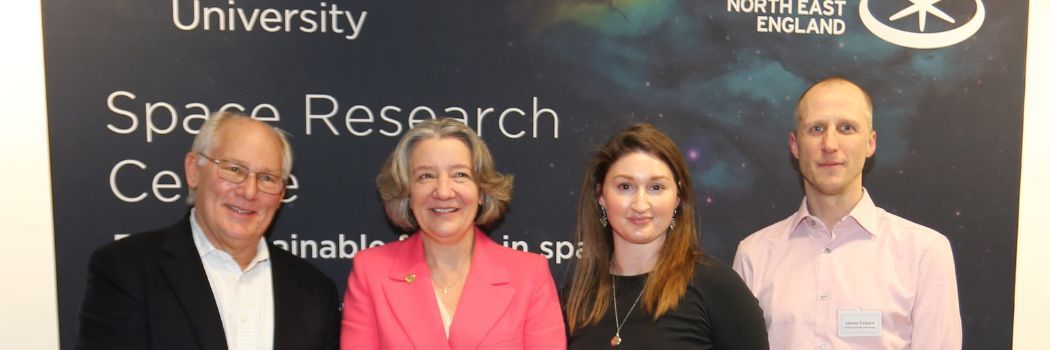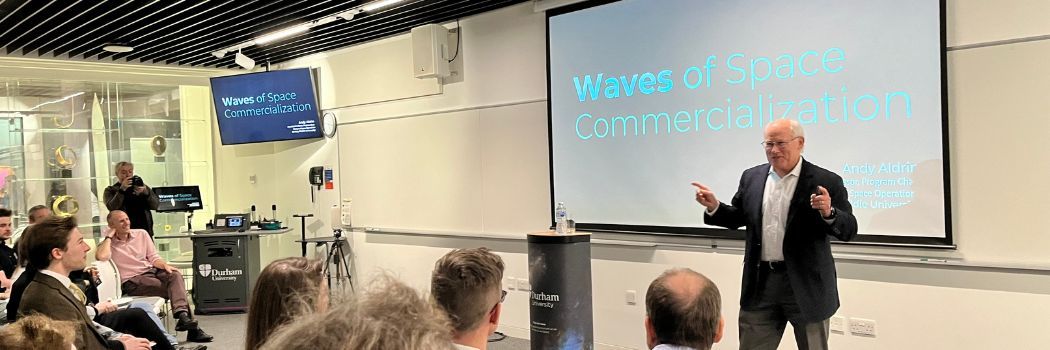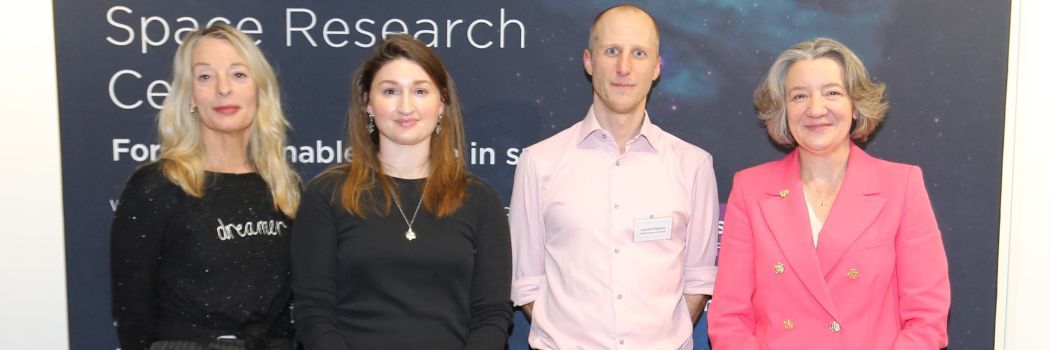
We've launched a new £5m research centre to support North East England's growing space industry and lead on the sustainable exploration of the cosmos.
The Durham University Space Research Centre (SPARC) draws upon our considerable and world-renowned expertise in space technology and research.
SPARC aims to be at the forefront of scientific advancement, business development, space law and the sustainable exploration of space.
The centre includes researchers from the University's departments of Physics, Law, Government and International Affairs, Computer Science and Durham University Business School.
Dr Andrew Aldrin, gave the keynote speech ahead of the centre's opening.
The son of legendary astronaut Buzz Aldrin, Andrew is Associate Professor and Chair of the Master of Sciences Space Systems, and the Master of Space Operations programmes at Embry-Riddle Aeronautical University, USA, as well as a leader in the field of space innovation and operations.
Influencing change in space sustainability
SPARC's goals include providing high-quality training and education to develop a skills pipeline of enthusiastic, creative and highly sought after workers for the regional and national space industry.
It also plans to engage with industry and policymakers, to influence change in governance and space sustainability.
ESA Lab status
The launch event also saw the announcement that we've become a European Space Agency (ESA) Laboratory.
Being part of the ESA Lab network gives Durham access to ESA's technical expertise, state-of-the-art facilities, and funding opportunities.
It also means further international collaboration, joint research initiatives, and technology transfer opportunities, alongside specialised training and student exchange programmes.
In addition, ESA Lab status provides more opportunity for other academic institutions and industry to collaborate with Durham and access the University's expertise and facilities in instrumentation, such as telescopes.
Durham's Centre for Advanced Instrumentation, based at NETPark, in Sedgefield, County Durham, already builds components for some of the world's biggest telescope and satellite projects, which are helping to further our understanding of space.
Commercial partners and government agencies who have worked with the University include the UK Space Agency, ESA and NASA.
Space is a rapidly growing sector which supports our improving quality of life and protecting our planet. Now is the time to develop technology and ideas for a sustainable future in space and the establishment of SPARC and our ESA Lab status will support us in achieving this.

- (L-R) Dr Andrew Aldrin, Professor Karen O'Brien, Vice-Chancellor and Warden of Durham University; Dr Carly Beckerman, Co-Director of the Durham University Space Research Centre (SPARC); and Professor James Osborn, Director of the Durham University Space Research Centre (SPARC), at the SPARC launch.

Dr Andrew Aldrin gives a keynote speech ahead of the opening of the new Durham University Space Research Centre (SPARC).

Alison Clark, Head of Culture, Sport and Tourism, at Durham County Council; Dr Carly Beckerman, Co-Director of the Durham University Space Research Centre (SPARC); Professor James Osborn, Director of the Durham University Space Research Centre (SPARC); and Professor Karen O'Brien, Vice-Chancellor and Warden of Durham University, at the SPARC launch.
Publicly accessible research
The event also served as the launch of Light Years - Durham University's art and space science project, which sits within the regional Into The Light partnership, led by Durham County Council.
Light Years offers another way for us to bring our space research and expertise to the public in an accessible way.
Find our more
Discover more about our departments of Physics, Law, Government and International Affairs, Computer Science and Durham University Business School who make up SPARC.






